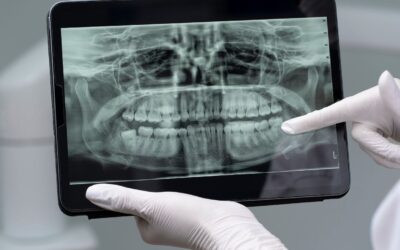If you’ve been experiencing discomfort or pain in your bottom teeth, you’re probably wondering, “Why do my bottom teeth hurt?” Whether the pain is dull or sharp, it’s not something you should ignore. Bottom teeth pain can arise from a variety of issues, ranging from tooth decay to gum disease or even nerve-related problems. Understanding the underlying causes is essential for identifying the correct course of treatment.
In this article, we’ll delve into the common causes of bottom teeth pain, the symptoms to look out for, and the best practices to alleviate discomfort. Armed with this information, you’ll be able to take the necessary steps toward resolving the pain and preventing it from recurring.
Common Causes of Bottom Teeth Pain
Understanding the root cause of your pain is the first step in alleviating it. Here are some common causes:
1. Tooth Decay and Cavities
Tooth decay is one of the most frequent causes of tooth pain. It begins when plaque—a sticky film of bacteria—builds up on the teeth. The acids produced by these bacteria begin to erode the enamel of the teeth, leading to cavities.
As the decay progresses, it can affect the nerves within the tooth, causing sharp, throbbing pain. Cavities in the bottom teeth are particularly common because they are more difficult to reach while brushing and flossing, leading to a buildup of plaque and bacteria.
How to Treat It?
-
Visit the dentist: If you suspect a cavity, it’s important to visit a dentist who can clean and fill the cavity.
-
Preventive care: Regular brushing, flossing, and professional cleanings help prevent cavities.
2. Gum Disease (Gingivitis or Periodontitis)
Gum disease begins with gingivitis, which is the inflammation of the gums. This can result from a buildup of plaque near the gum line. If left untreated, gingivitis can progress into periodontitis, a more severe form of gum disease that causes the gums to recede, exposing the roots of the teeth and resulting in painful symptoms.
When the gums become infected, they can cause pain, swelling, and bleeding, often affecting the bottom teeth more than the top.
Signs of Gum Disease:
-
Bleeding gums
-
Swollen or tender gums
-
Bad breath
-
Receding gums
-
Tooth mobility
Treatment Options:
-
Scaling and root planing: This deep cleaning procedure removes plaque and tartar from below the gum line.
-
Antibiotics: In some cases, antibiotics may be prescribed to control the infection.
3. Tooth Sensitivity
Tooth sensitivity is another reason why you might experience discomfort in your bottom teeth. This occurs when the enamel on the teeth wears away, exposing the underlying layer of dentin. Dentin is more sensitive to temperature changes and certain foods, which can trigger pain when consuming hot, cold, or sugary substances.
Causes of Tooth Sensitivity:
-
Worn enamel
-
Gum recession
-
Teeth grinding (bruxism)
-
Use of abrasive toothpaste
What to Do About It:
-
Use desensitizing toothpaste: These are specially formulated to reduce sensitivity.
-
Avoid acidic or extreme-temperature foods: Limiting foods that trigger pain can provide relief.
Symptoms to Watch Out For
Knowing when to seek help for bottom teeth pain can prevent further damage and help treat the underlying cause faster. Here are some symptoms to look out for:
4. Swollen or Bleeding Gums
If your bottom teeth are painful, and your gums are swollen or bleed when brushing, this could be a sign of gum disease. Bleeding gums are one of the earliest signs of gingivitis, which, if untreated, can lead to periodontitis. Additionally, swollen gums can put pressure on the teeth, resulting in pain.
When to Seek Treatment?
-
If you notice persistent bleeding or swelling, schedule a dentist appointment as soon as possible to address the issue before it worsens.
5. Sharp or Throbbing Pain
If the pain in your bottom teeth is sharp or throbbing, it could indicate nerve damage or an abscessed tooth. An abscess forms when bacteria infect the pulp of the tooth, causing an accumulation of pus that leads to severe pain and swelling.
An abscessed tooth is a serious condition that requires immediate medical attention to prevent the infection from spreading.
Other Warning Signs of an Abscess:
-
Bad taste in the mouth
-
Fever
-
Swelling in the jaw or face
-
Persistent, severe pain
Treatment:
-
Root canal therapy: This procedure removes the infected pulp from the tooth, alleviating the pain and preventing further infection.
-
Antibiotics: To treat any bacterial infection associated with an abscess.
Possible Underlying Health Issues
Sometimes, the pain in your bottom teeth can stem from issues unrelated to the teeth themselves. Below are some health conditions that might contribute to your tooth pain:
6. Impacted Wisdom Teeth
Impacted wisdom teeth occur when the third molars don’t have enough space to emerge properly through the gums. This can cause pressure and pain, particularly in the bottom teeth. Impacted wisdom teeth may also lead to infection, swelling, and damage to surrounding teeth.
How to Handle Impacted Wisdom Teeth:
-
Extraction: In many cases, impacted wisdom teeth need to be extracted to alleviate pain and prevent further complications.
-
Pain relief: Over-the-counter pain medications can help manage the discomfort while you wait for treatment.
7. Teeth Grinding (Bruxism)
If you grind your teeth at night or during periods of stress, it can lead to significant pain in your bottom teeth. This constant grinding wears down the enamel and can cause jaw pain, headaches, and tooth sensitivity.
Signs You Might Be Grinding Your Teeth:
-
Worn-down teeth
-
Jaw pain or tightness
-
Headaches
-
Tooth sensitivity
What Can You Do?
-
Nightguards: A dentist can fit you with a nightguard to protect your teeth from the effects of grinding.
-
Stress management: Reducing stress levels can help decrease the frequency of bruxism.
How to Alleviate Bottom Teeth Pain
There are several ways to alleviate bottom teeth pain, depending on the cause:
8. Proper Oral Hygiene
Maintaining excellent oral hygiene is essential for preventing and managing tooth pain. Brushing twice a day, flossing, and using mouthwash can remove plaque, reduce bacteria, and prevent cavities and gum disease, which are major contributors to bottom teeth pain.
Tips for Effective Oral Hygiene:
-
Use fluoride toothpaste: Fluoride helps strengthen enamel and prevent decay.
-
Floss daily: This removes food particles and plaque between teeth.
-
Use mouthwash: An antibacterial mouthwash can help reduce plaque buildup.
9. Visit the Dentist Regularly
Routine visits to the dentist can help catch issues before they develop into serious problems. Professional cleanings remove plaque and tartar buildup that can cause cavities and gum disease. Dentists can also spot early signs of infections or wisdom teeth issues and offer timely treatment.
How Often Should You Visit the Dentist?:
-
Schedule regular dental check-ups every six months for optimal oral health.
10. Over-the-Counter Pain Relief
For temporary relief from pain, you can take over-the-counter pain medications such as ibuprofen or acetaminophen. These medications can help reduce inflammation and manage pain while you wait for your dentist appointment.
Other Home Remedies:
-
Saltwater rinse: Rinsing your mouth with warm salt water can help reduce swelling and kill bacteria.
-
Cold compress: Applying a cold compress to the affected area can reduce inflammation and numb the pain.
Frequently Asked Questions (FAQs)
1. Why do my bottom teeth hurt when I chew?
Pain while chewing often points to tooth decay, cavities, or even gum disease. It’s best to see a dentist to determine the exact cause.
2. Can gum disease cause pain in my bottom teeth?
Yes, gum disease (gingivitis or periodontitis) can cause pain, swelling, and sensitivity in the bottom teeth due to inflammation of the gums.
3. How can I prevent pain in my bottom teeth?
Maintain good oral hygiene, brush regularly, floss daily, and visit your dentist for routine check-ups to prevent tooth pain.
4. Should I be worried about wisdom teeth pain?
Wisdom teeth pain could indicate impaction or infection. A dentist can assess whether removal is necessary.
5. What should I do if my bottom teeth are very sensitive?
Try using desensitizing toothpaste, avoid acidic foods, and visit a dentist to check for any underlying issues.
6. How long does it take for a tooth infection to heal?
With proper dental care, a tooth infection can heal in a few days to a couple of weeks. It’s important to follow your dentist’s instructions carefully to prevent further complications.
Conclusion
Bottom teeth pain can result from various causes, including tooth decay, gum disease, sensitivity, and impacted wisdom teeth. While the pain can be uncomfortable, identifying the cause early on can help prevent further damage and improve your overall dental health. Be proactive in maintaining good oral hygiene, and seek professional dental care to address persistent or severe pain. By taking these steps, you can protect your bottom teeth and enjoy a pain-free smile.



